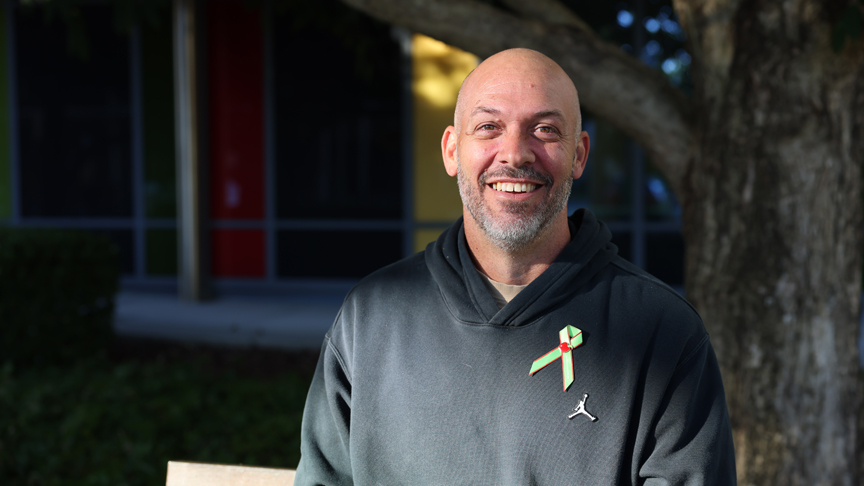
A Sunshine Coast bowel cancer survivor is urging adults of all ages to not ignore symptoms or put off testing, after he was diagnosed in his 40s.
Derick Payne said most people wrongly assume bowel cancer is only a risk for older people.
“That’s probably why I didn’t go to the doctor as soon as maybe I should have because I’m like ‘I’m in my 40s’”, he said.
Derick was initially diagnosed at just 45 years old, after noticing blood in his stool.
He has been through a long treatment journey and continues to be monitored, but is now cancer free.
June is Bowel Cancer Awareness month and Derick is urging everyone to not put off testing if they notice a change in their bowel movements, or if they are of the testing age.
“Noone likes to talk about poo, but we all poo, it shouldn’t be the taboo subject that it is – if you get that test in the mail, just do the test.”
The national bowel screening age was lowered from 50 last year, with people aged 45-49 now able to opt-in for the test.
“It’s just peace of mind, and the quicker they find it if there is something wrong the better it is.”
Sunshine Coast Health Colorectal Surgeon Dr Josefin Petersson said that while there is a higher risk of bowel cancer with age, the demographics have recently shifted.
“There’s been wide evidence from all over the world showing we have an increase in colo-rectal cancer in the younger population – meaning under 50 years of age – and that’s also been seen in Australia,” she said.
“One in nine bowel cancer patients in Australia are under the age of 50 at the moment.”
She said it’s important younger people are aware they can actually get this type of cancer, otherwise they may ignore symptoms.
“You have to actually put your hand up to request the bowel screening kit, and if you don’t know about this being a thing that could affect you at this age group then you’re not going to ask for it.”
Dr Petersson said not only is it possible for the younger demographic to get this type of cancer, it’s actually the deadliest cancer for people between 25 and 50.
She said people of all ages should be aware of their health and those of screening age should not put off their tests.
“Be aware of what your stools look like on an everyday basis, and if there’s a change in your bowel habit or if you see in any blood in your stools, then go and speak to your GP.”